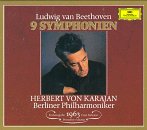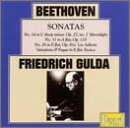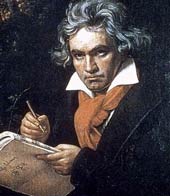|
The artist as a hero
Beethoven remains one of the world's greatest composers, supreme in every genre, yet many know him mainly through a handful of pieces - 'Moonlight' Sonata, 'Fur Elise'. Whatever your experience of Beethoven, I hope this site will broaden your knowledge and help to deepen your interest and love for his wonderful music.
'To The Immortal Beloved'
July 6, in the morning
My angel, my all, my very self - Only a few words today and at that with pencil (with yours) - Not till tomorrow will my lodgings be definitely determined upon - what a useless waste of time - Why this deep sorrow when necessity speaks - can our love endure except through sacrifices, through not demanding everything from one another; can you change the fact that you are not wholly mine, I not wholly thine - Oh God, look out into the beauties of nature and comfort your heart with that which must be - Love demands everything and that very justly - thus it is to me with you, and you with me. But you forget so easily that I must live for me and for you; if we were wholly united you would feel the pain of it as little as I - My journey was a fearful one: I did not reach here until 4 o'clock yesterday morning. Lacking horses the postcoach chose another route, but what an awful one; at the stage before the last I was warned not to travel at night; I was made fearful of the forest, but that only made me the more eager - and I was wrong. The coach must needs break down on the wretched road, a bottomless mud road. Without such postilions as I had with me I should have remained stuck in the road. Esterhazy, traveling the usual road here, had the same fate with eight horses that I had with four - yet I got some pleasure out of it, as I always do when I successfully overcome difficulties - Now a quick change to things internal from things external. We shall surely see each other soon; moreover, today I cannot share with you the thoughts I have had during these last few days touching my own life - If our hearts were always close together, I would have none of these. My heart is full of so many things to say to you - ah - there are moments when I feel that speech amounts to nothing at all - Cheer up - remain my true, my only treasure, my all as I am yours. The gods must send us the rest, what for us must and shall be
Your faithful Ludwig
Letter about Beethoven from Goethe to his wife, 19July 1812 :
'I have never before seen a more comprehensive, energetic or intense artist. I understand very well how strange he must appear to the outside world.'
Ludwig van Beethoven studied first with his father, Johann, a singer and instrumentalist in the service of the Elector of Cologne at Bonn, but mainly with C.G. Neefe, court organist. At 11 ½ he was able to deputize for Neefe; at 12 he had some music published. In 1787 he went to Vienna, but quickly returned on hearing that his mother was dying. Five years later he went back to Vienna, where he settled. He pursued his studies, first with Haydn, but there was some clash of temperaments and Beethoven studied too with Schenk, Albrechtsberger and Salieri.
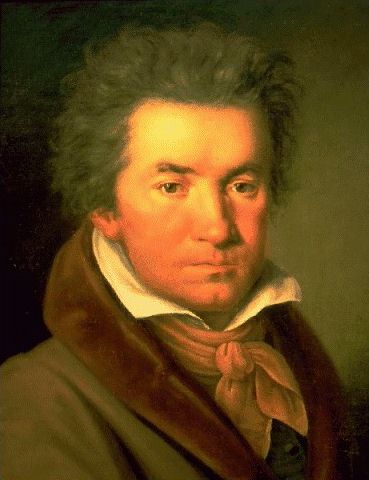 Until 1794 he was supported by the Elector at Bonn but he found patrons among the music-loving Viennese aristocracy and soon enjoyed success as a piano virtuoso, playing at private houses or palaces rather than in public. His public debut was in 1795; about the same time his first important publications appeared, three piano trios op.l and three piano sonatas op.2. As a pianist, it was reported, he had fire, brilliance and fantasy as well as depth of feeling. It is naturally in the piano sonatas, writing for his own instrument, that he is at his most original in this period; the Pathetique belongs to 1799, the Moonlight ('Sonata quasi una fantasia') to 1801, and these represent only the most obvious innovations in style and emotional content. These years also saw the composition of his first three piano concertos, his first two symphonies and a set of six string quartets op.l8.
Until 1794 he was supported by the Elector at Bonn but he found patrons among the music-loving Viennese aristocracy and soon enjoyed success as a piano virtuoso, playing at private houses or palaces rather than in public. His public debut was in 1795; about the same time his first important publications appeared, three piano trios op.l and three piano sonatas op.2. As a pianist, it was reported, he had fire, brilliance and fantasy as well as depth of feeling. It is naturally in the piano sonatas, writing for his own instrument, that he is at his most original in this period; the Pathetique belongs to 1799, the Moonlight ('Sonata quasi una fantasia') to 1801, and these represent only the most obvious innovations in style and emotional content. These years also saw the composition of his first three piano concertos, his first two symphonies and a set of six string quartets op.l8.
1802, however, was a year of crisis for Beethoven, with his realization that the impaired hearing he had noticed for some time was incurable and sure to worsen. That autumn, at a village outside Vienna, Heiligenstadt, he wrote a will-like document, addressed to his two brothers, describing his bitter unhappiness over his affliction in terms suggesting that he thought death was near. But he came through with his determination strengthened and entered a new creative phase, generally called his 'middle period'. It is characterized by a heroic tone, evident in the Eroica Symphony (no.3, originally to have been dedicated not to a noble patron but to Napoleon), in Symphony no.5, where the sombre mood of the c Minor first movement ('Fate knocking on the door') ultimately yields to a triumphant C Major finale with piccolo, trombones and percussion added to the orchestra, and in his opera Fidelio. Here the heroic theme is made explicit by the story, in which (in the post-French Revolution 'rescue opera' tradition) a wife saves her imprisoned husband from murder at the hands of his oppressive political enemy. The three string quartets of this period, op.59, are similarly heroic in scale: the first, lasting some 45 minutes, is conceived with great breadth, and it too embodies a sense of triumph as the intense f Minor Adagio gives way to a jubilant finale in the major embodying (at the request of the dedicatee, Count Razumovsky) a Russian folk melody.
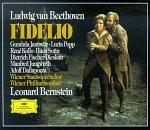
Fidelio, unsuccessful at its premiere, was twice revised by Beethoven and his librettists and successful in its final version of 1814. Here there is more emphasis on the moral force of the story. It deals not only with freedom and justice, and heroism, but also with married love, and in the character of the heroine Leonore, Beethoven's lofty, idealized image of womanhood is to be seen. He did not find it in real life he fell in love several times, usually with aristocratic pupils (some of them married), and each time was either rejected or saw that the woman did not match his ideals. In 1812, however, he wrote a passionate love-letter to an 'Eternally Beloved' (probably Antonie Brentano, a Viennese married to a Frankfurt businessman), but probably the letter was never sent.
With his powerful and expansive middle-period works, which include the Pastoral Symphony (no.6, conjuring up his feelings about the countryside, which he loved), Symphony no.7 and Symphony no. 8, Piano Concertos nos.4 (a lyrical work) and 5 (the noble and brilliant Emperor) and the Violin Concerto, as well as more chamber works and piano sonatas (such as the Waldstein and the Appassionata) Beethoven was firmly established as the greatest composer of his time. His piano-playing career had finished in 1808 (a charity appearance in 1814 was a disaster because of his deafness). That year he had considered leaving Vienna for a secure post in Germany, but three Viennese noblemen had banded together to provide him with a steady income and he remained there, although the plan foundered in the ensuing Napoleonic wars in which his patrons suffered and the value of Austrian money declined.
The years after 1812 were relatively unproductive. He seems to have been seriously depressed, by his deafness and the resulting isolation, by the failure of his marital hopes and (from 1815) by anxieties over the custodianship of the son of his late brother, which involved him in legal actions. But he came out of these trials to write his profoundest music, which surely reflects something of what he had been through. There are seven piano sonatas in this, his 'late period', including the turbulent Hammerklavier op.106, with its dynamic writing and its harsh, rebarbative fugue, and op.110, which also has fugues and much eccentric writing at the instrument's extremes of compass; there is a great Mass and a Choral Symphony, no.9 in d Minor, where the extended variation-finale is a setting for soloists and chorus of Schiller's Ode an die Freude (Ode to Joy); and there is a group of string quartets, music on a new plane of spiritual depth, with their exalted ideas, abrupt contrasts and emotional intensity. The traditional four-movement scheme and conventional forms are discarded in favour of designs of six or seven movements, some fugal, some akin to variations (these forms especially attracted him in his late years), some song-like, some martial, one even like a chorale prelude. For Beethoven, the act of composition had always been a struggle, as the tortuous scrawls of his sketchbooks show; in these late works the sense of agonizing effort is a part of the music.
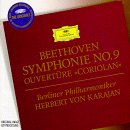 Musical taste in Vienna had changed during the first decades of the 19th century; the public were chiefly interested in light Italian opera (especially Rossini) and easygoing chamber music and songs, to suit the prevalent bourgeois taste. Yet the Viennese were conscious of Beethoven's greatness: they applauded the Choral Symphony even though, understandably, they found it difficuit, and though baffled by the late quartets they sensed their extraordinary visionary qualities. His reputation went far beyond Vienna: the late Mass was first heard in St. Petersburg, and the initial commission that produced the Choral Symphony had come from the Philharmonic Society of London. When, early in 1827, he died, 10,000 are said to have attended the funeral. He had become a public figure, as no composer had done before. Unlike composers of the preceding generation, he had never been a purveyor of music to the nobility he had lived into the age - indeed helped create it - of the artist as hero and the property of mankind at large.
Musical taste in Vienna had changed during the first decades of the 19th century; the public were chiefly interested in light Italian opera (especially Rossini) and easygoing chamber music and songs, to suit the prevalent bourgeois taste. Yet the Viennese were conscious of Beethoven's greatness: they applauded the Choral Symphony even though, understandably, they found it difficuit, and though baffled by the late quartets they sensed their extraordinary visionary qualities. His reputation went far beyond Vienna: the late Mass was first heard in St. Petersburg, and the initial commission that produced the Choral Symphony had come from the Philharmonic Society of London. When, early in 1827, he died, 10,000 are said to have attended the funeral. He had become a public figure, as no composer had done before. Unlike composers of the preceding generation, he had never been a purveyor of music to the nobility he had lived into the age - indeed helped create it - of the artist as hero and the property of mankind at large.
|
